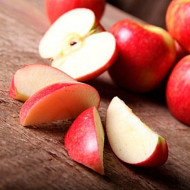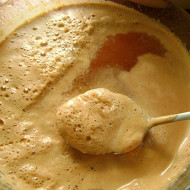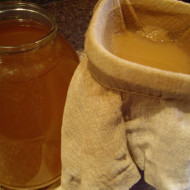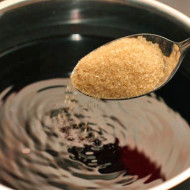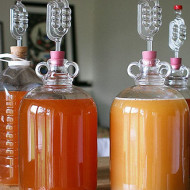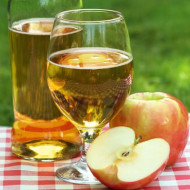Cooking apple wine at home - 8 easy recipes
Content
The benefits of homemade apple wine
You can dilute your homemade wine collection with a low-alcohol drink made from apples. The average strength of the product is only 10%. Depending on the recipe and preparation technology, the drink can be sweet, semi-sweet, fortified and dry.
The beneficial properties of homemade apple wine include:
- relieving nervous tension and physical fatigue;
- stimulation of the digestive tract;
- normalization of blood pressure;
- reducing the likelihood of thrombosis;
- normalization of hormonal levels in case of nervous stress, neuroses and depressive conditions;
- acceleration of fat processing;
- reducing the risk of developing tumor-like formations of unclear or malignant genesis.
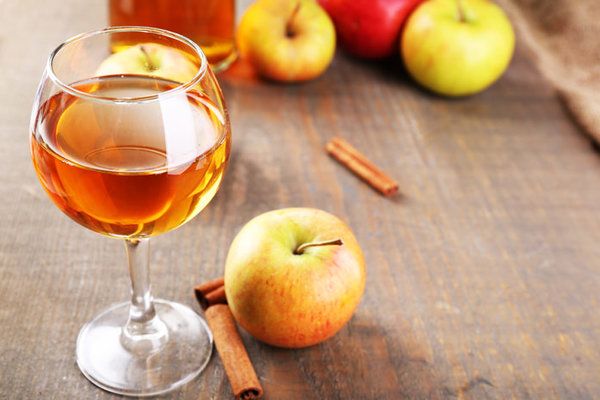
Homemade apple wine has a beneficial effect on the body
It's no secret that any alcoholic drink raises your spirits, distracts you from problems and various troubles. Apple wine is often used in cosmetology to make anti-aging masks. A couple of drops of amber liquid help to strengthen the hair follicles. Hair becomes soft and silky.
What apples to use
What kinds of apples are used to make an alcoholic drink? For making homemade cider or table wine, it is recommended to take autumn sweet and sour varieties. Juicy late autumn and winter fruits can be used to make sweet or semi-sweet wine.
To prepare a fortified drink, it is better to take an apple of the Antonovka ordinary variety. Wild varieties of fruit crops will help to add astringency. But you can diversify the taste with the help of various additives. The most commonly used are lemon juice, citrus zest, cinnamon, mint, blackthorn, raisins, chokeberry, etc.
Video "Homemade apple wine"
This video presents a step-by-step master class on making a low-alcohol drink at home.
Homemade Apple Wine Recipes
Let's take a look at the most popular homemade apple wine recipes.
Traditional recipe
To prepare a drink, you will need 20 kg of ripe juicy apples and granulated sugar. The amount of sugar is determined by the volume of the juice. The consumption of granulated sugar per 1 liter of juice can vary from 150 to 400 g.

Homemade apple wine is made from sweet and sour juicy fruits
Getting juice
The first step is getting apple juice. The easiest way is to use an electric juicer. In the absence of a household appliance in the house, you can use a regular kitchen grater. Squeeze the fruit puree through several layers of cheesecloth.
Juice settling
The finished juice is poured into a deep container and covered with gauze. On average, the stage of juice settling takes 2.5-3.5 days. When apple pulp or a thin layer of crust forms on the surface, the product is ready for further procedures.
For the first day, the settling juice must be thoroughly mixed every 8 hours.When stirring the mass, the yeast is evenly distributed.
The formed mash layer is removed. As soon as the juice gives the first hiss, you can proceed to the next stage. In this case, the drink should emit a characteristic alcoholic smell.
Sugar addition
Many novice winemakers do not know how to correctly calculate the required amount of sugar. For example, the use of a sweet variety of apples implies a small amount of sugar - no more than 150 g per 1 liter of juice. If you plan to make dessert wine, the amount of sugar can be increased to 200 g per 1 liter of juice. At a high concentration of sugar product, the fermentation process stops.
Sugar is added in several passes:
- After removing the resulting pulp - 100 g per 1 liter.
- After 5 days from removing the mash - 50–100 g per 1 liter.
- After 10 days from the first addition - 30–80 g per 1 liter.
Fermentation process
The drink can now be poured into an airtight container. The filling level of the container should be no more than 4/5 of the total volume.
A water seal is required to remove the carbon dioxide released during fermentation. You can buy a water trap at any store with a large selection of different kitchen accessories and gadgets. Alternatively, you can use a small diameter hose or a rubber glove pierced with a needle.
The optimum air temperature in the room where the container with wine is located is + 18… + 25 ° C. The duration of the stage is from 30 to 60 days. Sludge formation, a deflated glove, and the absence of bubbles are signs of the end of the fermentation process.
Maturation of wine
The ripened drink is poured into a glass bottle treated with boiling water. In this case, the sediment should not get into a new container. The drink is allowed to brew well. It is recommended to drink wine after 2-4 months from the moment of its infusion.
Homemade cider
We take 3 kg of sour apples and 6 kg of sweet ones. We squeeze out the juice and set aside for infusion for 24 hours.
Pour the juice settled in a semi-dark place into a container for fermentation. The fermentation procedure takes 3 to 5 weeks. At the end of this stage, pour the drink into glass bottles, cork tightly and let it brew for 3-4 months. The recommended room temperature should be between +6 and +12 ° C.
The main difference between cider and wine is the absence of sugar. If the drink is too sour or tart, some filtered water is added at the start of fermentation.
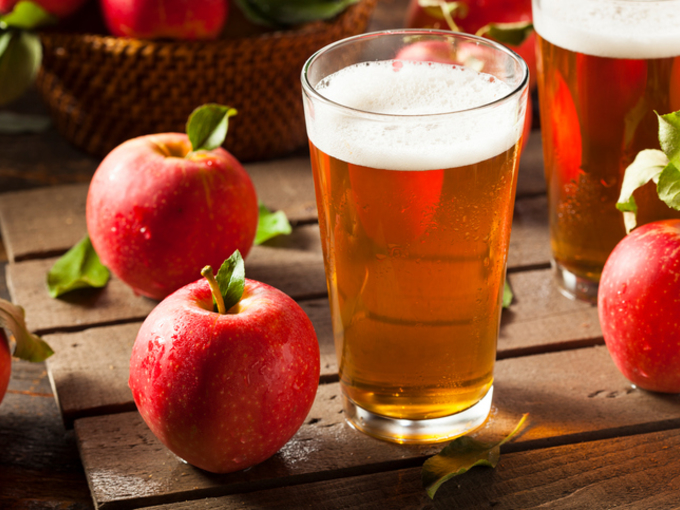
Cider is made from sweet and sour apples.
Carbonated cider
Carbonated cider has an interesting taste. The settled juice is allowed to go through the fermentation stage. Then sugar is poured into glass or plastic bottles (10 g per 1 liter) and wine is poured without sediment. The container should have about 5 cm of free space - for the release of carbon dioxide.
Bottles tightly closed with nylon caps are moved to a semi-dark place. The fermentation period lasts 10-14 days. Store the finished carbonated cider in the refrigerator or any other cool place.
Lemon cider
Apple-lemon cider has a pleasant aroma. To prepare an alcoholic drink, you need 8 kg of sour apples, 2 kg of granulated sugar and 2 medium-sized lemons.
Apple slices, lemon zest and sugar are poured into 10 liters of purified drinking water. The container is covered with gauze and the mass is infused for 7-10 days. The present drink is filtered, bottled and tightly corked.
Dried apple wine
You can make wine not only from fresh, but also from dried apples. 1 kg of drying is poured with warm water. After 12 hours, the liquid is drained, the apples are dried and crushed with a blender. Add 1.5 kg of sugar and boiled water to the mass.
Warm water, 1.5 kg of granulated sugar and 20 g of yeast are mixed in a separate container. When the yeast and sugar are dissolved, the components from the two containers are mixed, filtered and sent to fermentation. After 14 days, the young wine is re-filtered, bottled and cooled.
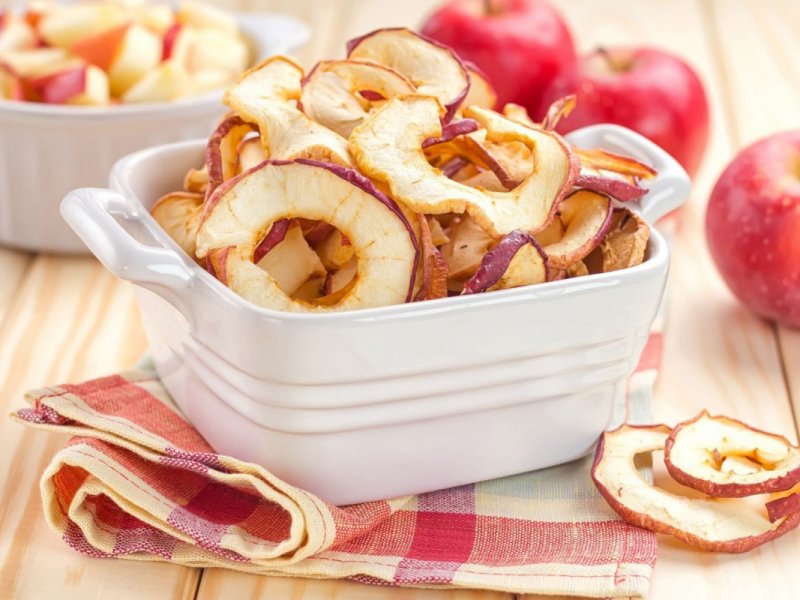
Dried apples can be used to prepare an alcoholic drink.
Fortified wine
Fortified wine can be prepared according to the traditional recipe described above, adding 100 g of dark pitted raisins to the apples. At the end of the fermentation stage, the drink is filtered and 200 ml of vodka is added.
The finished drink is sent to storage in a cool basement or in a refrigerator.
Spicy wine
The addition of cinnamon will add a spicy flavor to the wine. For 4 kg of peeled and cut apples, you need 40 g of cinnamon and 4 liters of water. The mass is boiled over low heat until the fruit is soft. Then the mixture is cooled, thoroughly ground through a sieve and sent for settling. After 3 days, remove the pulp, add 700-800 g of sugar and ferment. After about a week, the water seal is removed and the drink is kept for another 7-10 days.
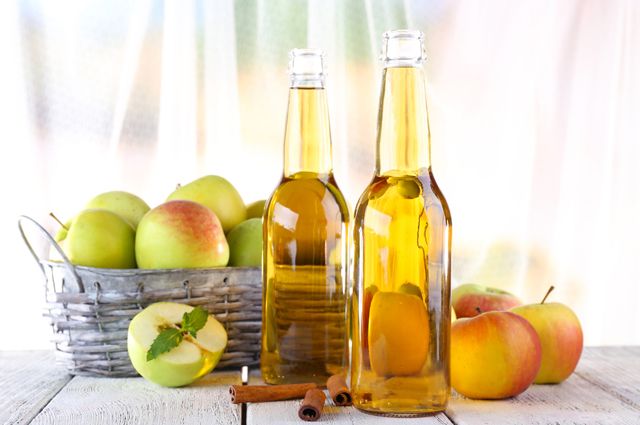
The addition of cinnamon will add a spicy flavor to the drink.
Wine made from apples and chokeberry
Apple-mountain ash wine is prepared by analogy with the traditional recipe. All cooking steps are identical. The difference is the component composition. So, 2.5 kg of apples will need 5 kg of overripe chokeberry, 1.5 kg of granulated sugar and 1 liter of filtered water.
A few storage tips
Store the wine in a cool room, while the bottles should stand horizontally. Instead of plastic or metal curls, it is better to use wine peels.
The optimum air temperature for storing apple wine should be between + 6… + 16 ° C. Bottles must not be moved or shaken.
Homemade apple wine is characterized by a pleasant aroma and amazing taste with subtle fruity notes. The drink does not cause strong alcoholic intoxication and has a beneficial effect on the general condition of a person.

